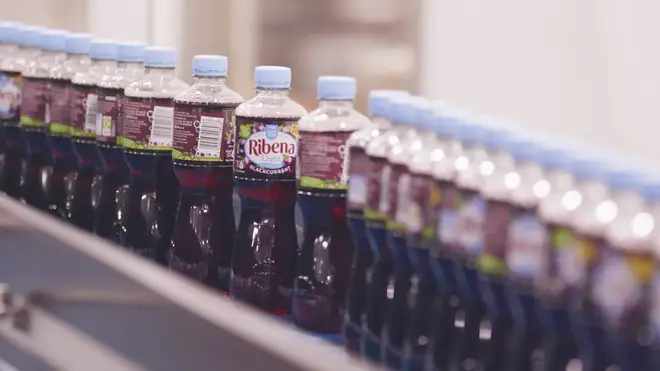
Ali Miraj 12pm - 3pm
27 May 2022, 09:54

The warning came as the company confirmed all its on-the-go bottles will be made from 100% recycled plastic by the end of the year.
Levels of recycled plastic in Europe need to more than treble for all soft drinks companies to switch to 100% recycled bottles, the company that makes Ribena has warned.
Suntory Beverage and Food GB&I, which also makes Lucozade, has confirmed all its on-the-go 500ml bottles, excluding the cap and label, will be made from 100% recycled plastic known as rPET by the end of the year.
The move includes Lucozade Sport, Lucozade Energy, Orangina and Ribena.
Recycled plastic has an average 79% lower carbon footprint than “virgin” plastic from raw materials and the company estimates the switch will save around 36,000 tonnes of carbon dioxide a year.
But the company warned that the amount of food-grade recycled plastic will need to increase significantly for other firms to do the same.
Europe produces around 1.3 million tonnes of rPET of the quality needed for packaging food and drinks, and that would need to increase by 3.56 million tonnes for all soft drinks companies to switch to 100% recycled plastic bottles in the continent.
Demand for the food-grade material is pushing up costs so it is 39% more expensive than virgin plastic of the same type.
Liz Nieboer, head of sustainability at Suntory, said of the shift to 100% rPET bottles: “It’s the result of years of hard work and whilst reaching this milestone is a cause for celebration, much still needs to be done in terms of recycling infrastructure.
“There has been a historic under-investment in the UK’s recycling and collection infrastructures, meaning less than a third of bottles are turned back into bottles.”
Lucozade Sport, Orangina and Ribena bottles are already 100% rPET, but further supply is needed for Lucozade Energy, the company said.
In the short term, to address industry shortages and meet UK requirements for 30% recycled material in packaging, Suntory invested in a 9,000-tonne resin containing 30% content from innovative chemical recycling.
The process breaks plastic back down into its core elements, allowing it to be reformed into new food-grade rPET as if it were a virgin material.
Chemical recycling will also be needed in the long term, along with more traditional methods of recycling plastic, to help stop plastics contaminated with food going to landfill or incineration, the company suggests.
Suntory also said action is needed to make plastics in the UK into a circular system without waste.